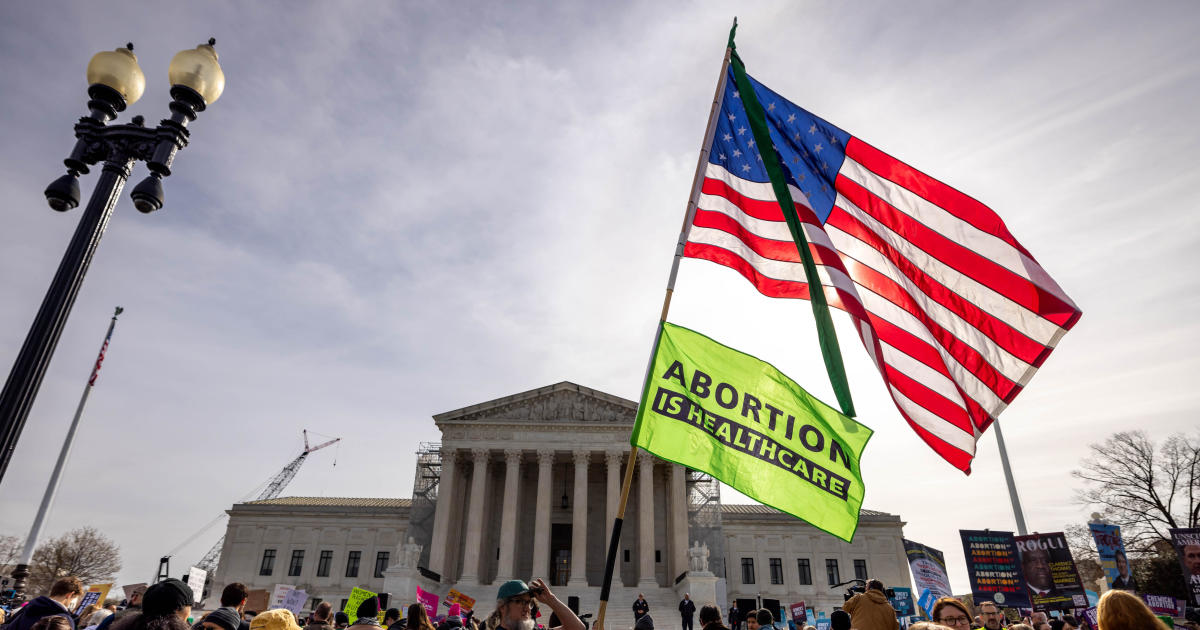The bans on transgender athletes — 6 facts
Lawmakers in 27 states have proposed legislation that would ban transgender athletes from competing in school sports that match their gender identity, sparking outcry from both parents and advocacy groups who call the restrictions unconstitutional.
Idaho became the first state to enact such a ban last year but it was blocked by a federal judge amid an ongoing legal battle. The law would allow anyone to challenge a person's gender identity and require them to present a birth certificate as proof. This year, Alabama, Arkansas, Mississippi, Montana, South Dakota, West Virginia, Florida, and Tennessee enacted similar bans of their own.
Female athletes in several states have filed lawsuits against local school districts or states after transgender athletes defeated them in competitions, claiming transgender women possess a distinct advantage over them. The cases are highlighted by Republicans who support outright bans, with lawmakers saying they want to protect female athletes.
However, researchers say it's unclear how many transgender athletes are actually competing across the country and say there's no definitive proof that trans athletes hold an advantage over cisgender players.
1. There's no official count of trans athletes in youth, high school or college sports.
Most sports associations at youth, high school and college levels do not keep a count on how many trans athletes are competing.
Where policies do exist, their implementations are unique. In Ohio, transgender students must apply to compete on sports teams they identify with and are accepted on a case by case basis. "Since the fall of 2015, there have been 48 transgender rulings and of those, there have been only 11 transgender female approvals," a spokesperson from the Ohio High School Athletic Association said in a statement
At the collegiate level, there are at least 50 trans women competing on female sports teams in the United States, according to Joanna Harper, an author and researcher at Britain's Loughborough University. Harper believes there are hundreds of trans athletes on men's sports teams who have yet to transition and said it would be "almost impossible" to determine how many trans athletes are competing at the youth and high school level.
There are 1.4 million adults who identify as transgender in the U.S., which is less than 1% of the population in each state, according to the Williams Institute at UCLA's law school. That number is more difficult to determine for trans children because many are in various stages of transitioning or possibly fear for their safety.
Jules Gill-Peterson, a professor of gender, sexuality and women's studies at the University of Pittsburgh, said history suggests many trans children stay hidden out of fear for their safety. "Trans children have been going to school, going to the doctor, and living in our communities for over a century," Gill-Peterson said. "They just weren't always visible. So we're actually dealing with a new issue that really relies on a kind of historical amnesia."
2. All of the bills require children to prove their gender.
All 26 bills require children to prove their gender assigned at birth by presenting their birth certificate or a valid exam from a licensed physician if their gender is disputed.
In New Jersey's proposed "Fairness in Women's Sport Act," an athlete whose gender is questioned would be required to prove their gender with a signed doctor's note proving a genital exam or a testosterone or chromosome panel.
Ohio, West Virginia, and Rhode Island have similar requirements, where students who believe they were "deprived" of an athletic victory or opportunity by a trans athlete would have the ability to sue their school or higher institution.
3. 22 bills solely ban trans girls from female teams.
Twenty-two of the bills were written to ban trans girls and women from joining female sports teams, while six others also include boys' and men's teams. Eight states — Alabama, Arkansas, Mississippi, Montana, South Dakota, West Virginia, Florida, and Tennessee — have passed their version of the bills into law, preventing transgender girls from competing on the sports teams of their choice, with South Dakota's ban coming from the executive order.
The bills cite cases where athletes who have transitioned from assigned male at birth to female still retain higher levels of testosterone and muscle density after hormone therapy, which the supporters of the bills believe is an unfair advantage to cisgender girls.
"I will sign our bill to protect young girls from being forced to compete with biological males for athletic opportunities," Mississippi Governor Tate Reeves tweeted announcing his decision. "The push for kids to adopt transgenderism is just wrong."
In Tennessee, Governor Bill Lee signed his state's bill to "preserve women's athletics and ensure fair competition." South Carolina's bill is titled the "Save Women's Sports Act."
"We believe that it's very important that the integrity of those competitions are preserved, that these opportunities are protected, and I can tell you this: In Florida, girls are going to play girl sports and boys are going to play boy sports," Governor Ron DeSantis said as he signed Florida's bill.
4. There are few completed studies on whether younger transgender athletes have a measurable advantage over cisgender athletes.
The bills in Arkansas, Kansas, New Jersey and Rhode Island cite a 2012 article published in Psychology Today that claims "men have greater cardiovascular reserve, with larger hearts, greater lung volume per body mass, a higher red blood cell count, and higher hemoglobin than women."
The bills claim these advantages are "most important for success in sports such as strength, speed, and endurance" and give transgender women an advantage against cisgender women, calling them biological males.
Harper, the British researcher, said her research tells a different story: the difference in athleticism between girls and boys before puberty is almost inconsequential and doesn't require separate sports teams, much less a ban on transgender athletes. When students begin to mature, she said, the larger differences can start to become more apparent, but only translate outright to athletic performance in sports like track and field or sprinting, where athletes perform in solo events.
"Most sports don't rely on just one aspect or another of athleticism, and they are a combination of athletic attributes, skill, resources, game time, acumen and all sorts of other things. It's very difficult to quantify, say, team sports," Harper said.
Evening out the playing field in those instances would require eligible athletes to adhere to similar hormone therapy rules used on collegiate and Olympic levels, a specific legislation Harper believes would require intense compromise and communication between political parties rather than outright bans.
There are also limitations on what studies have been conducted as many researchers are unable to study children before, during and after their transition. Studies that have been completed focus on adult athletes who have already reached their maturity. A 2021 study published in the British Journal of Sports Medicine suggested that transgender women can maintain a physical advantage over cisgender women after a year of hormone therapy but suggested organizations extend required waiting periods to two years, instead of banning trans athletes altogether.
"It's really hard to make firm pronouncements about what is or isn't true about trans athletes," Harper said. "But there's certainly no sign that the trans athletes and particular trans women are on the verge or anywhere near the verge of taking over women's sports."
5. Opponents worry the bills could cause negative mental health effects on trans athletes.
More than half of transgender and non-binary youth have seriously considered suicide, according to the Trevor Project's National Survey on LGBTQ+ mental health, with over 40% of respondents reported being physically harmed or threatened because of their orientation.
"Trans children are really walking around with targets on their back in this country right now, and the kind of mental health and long-term impact that has on people's life chances really can't be understated," said Gill-Peterson.
The survey found that 61% of transgender youth said they were discriminated at schools more than anywhere else. But the survey also found that respecting and affirming the identity of trans students was "consistently associated with lower rates of suicide attempts," as trans youth who said their pronouns and identity were respected by most or all of the people in their life had their suicide rates cut in half.
6. One law is tied up in court and the other bills face the threat of legal challenges.
Last year, the ACLU filed a lawsuit challenging Idaho's ban and is threatening to sue other states that enact laws of their own. The lawsuit was filed on behalf of Lindsay Hecox, a transgender athlete who hopes to run track for Boise State University.
"I just want to run with other girls on the team," Hecox said in a statement at the time. "I run for myself, but part of what I enjoy about the sport is building the relationships with a team. I'm a girl, and the right team for me is the girls' team."
In May, the ACLU also filed a lawsuit against the state of West Virginia for its law banning transgender girls from playing on female sports teams. Chase Strangio, a transgender rights attorney with the ACLU, said the organization plans to file more lawsuits as the year continues.
"The sad reality is these bills are already illegal. Title IX prohibits discrimination against students in schools," Strangio said. "Ultimately this has been a messaging and strategy of a group of people and organizations that have long been committed to attacking trans people."
"Unfortunately, states are moving very quickly and in some cases, it's too late and they will pass. But we'll continue to fight back in every way that we can."
In South Dakota, Governor Kristi Noem partially vetoed a bill that would have banned transgender girls and women from playing on female sports teams. Her partial veto limited the ban to high school and elementary sports, and her altered version was struck down in the House. The governor had feared lawsuits and retaliation from the NCAA.
However, Noem issued two weaker executive orders: one requires girls to present a birth certificate proving they were born female in order to play on girls' teams. The second recommends colleges in the state to enact bans on trans athletes.
Justin Bey contributed to this report.



